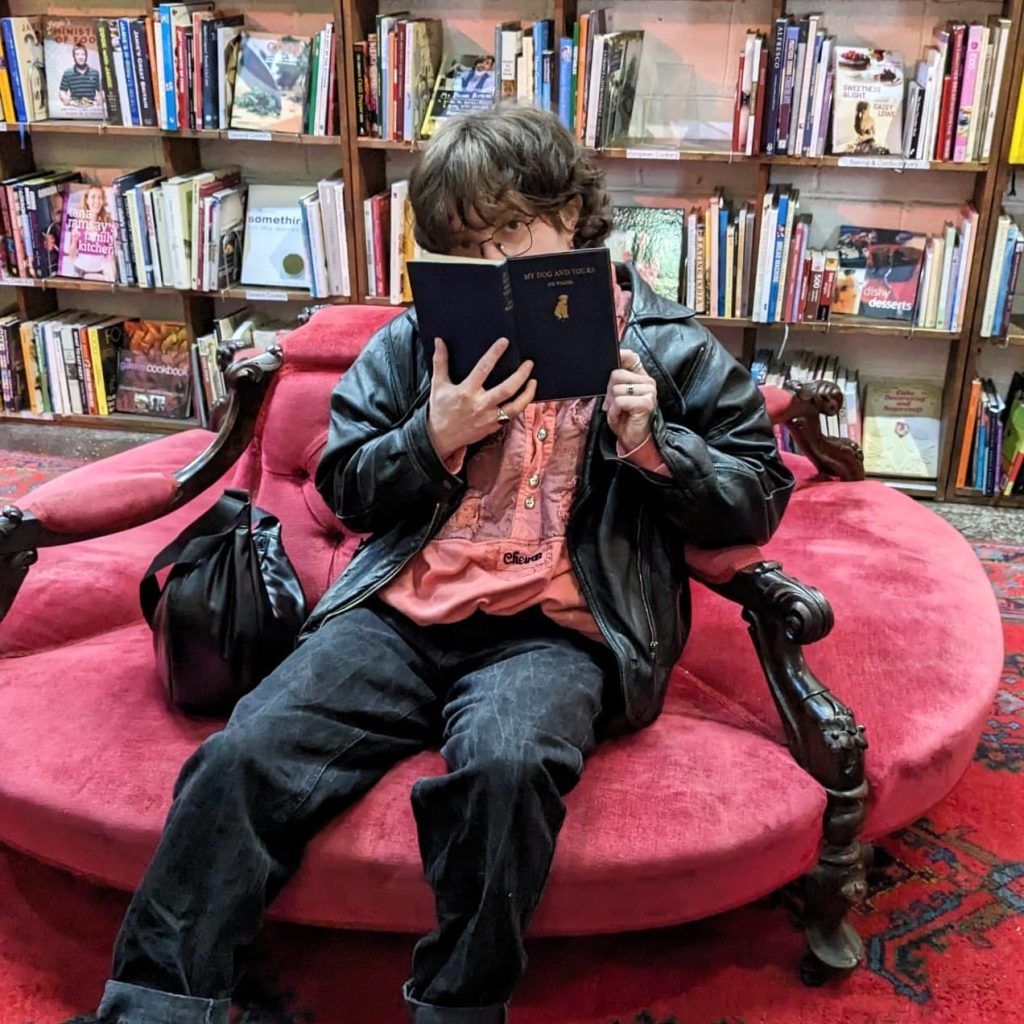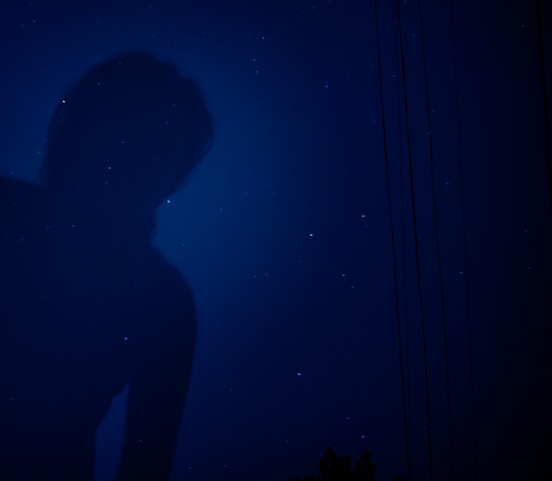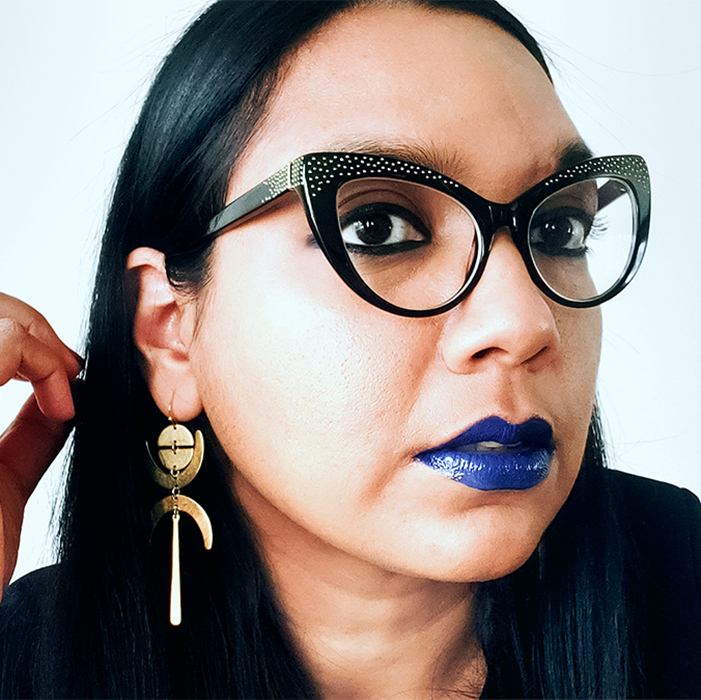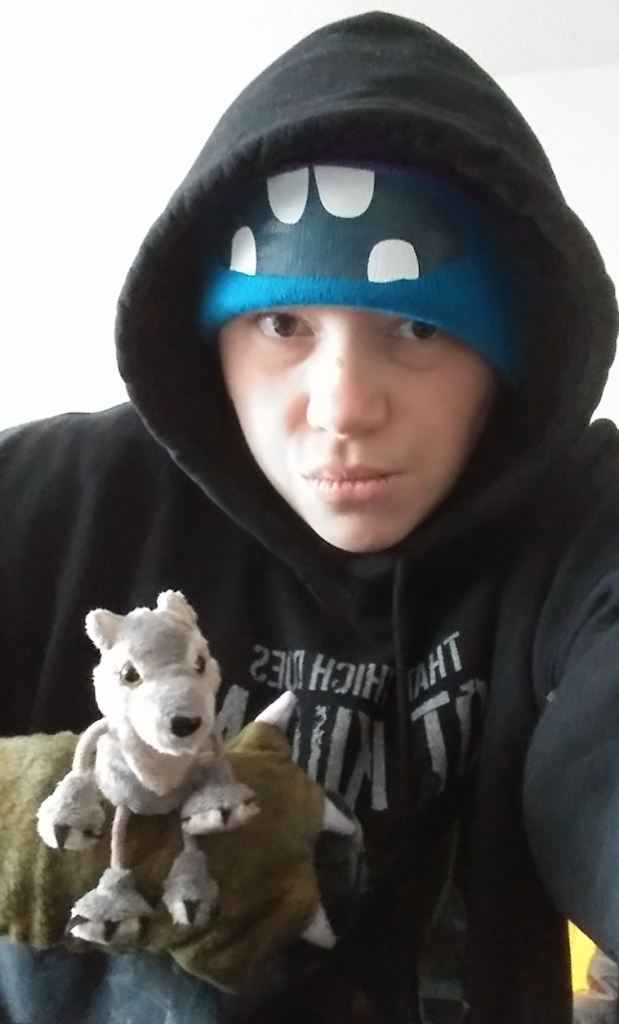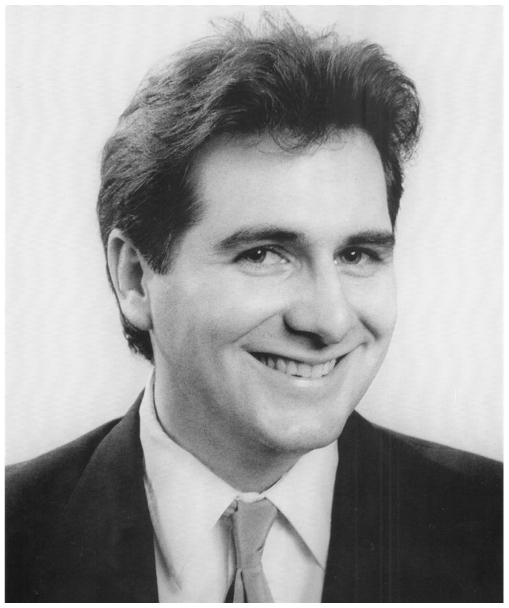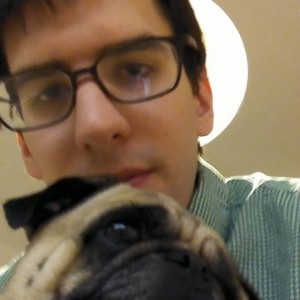edited by Chelle Parker
Mama’s bones scream as the writhing mass of beetles cleans her skeleton. My fingers bury themselves in my ears against my will, trying to block the shrieking no one else can hear and the squish of macerated flesh they can. I don’t know which one’s worse.
The hedgewitch watches me from beneath her fur-trimmed hood, her sunken eyes eerily like the beetles in the flickering lantern light. I look towards the silent forest, the trees an army of mourners watching the funeral beneath the velvet sky. The spaces between them could hide countless monsters, but nothing there scares me more than the yawning space at my side where Mama has always stood.
Not even the whispers of the villagers on the other side of the beetle well, or the way they shrink from me in fear.
None of them can hear the bones.
I first heard them ten years ago. I was seven, and they whispered inside the wall, the click and chatter of a decaying mouse. It was a sound I heard in my own bones, like the marrow called to its sister. A cold sound, not meant for the living. Even then, I knew not to tell people I could hear the bones, knew they’d say I was no better than a Bone Eater myself. I didn’t tell Mama until I was eleven, when Granny died and we took her bones down to the crypt.
Granny’s bones didn’t scream. They sang with the sort of sad contentment that I now know only comes from a life well-lived and a peaceful passing. Mama didn’t get that. The wasting sickness didn’t let her have even that at the end.
I sink to my knees before Mama’s beetle-swathed corpse, waiting for the last of her pain to stop boring through my eardrums, rattling my skull. A hand clamps on my arm, bony fingers digging deep into my tender flesh as though they might rip it from my bones just like the beetles.
“Up, Suvi.” The hedgewitch’s red-painted, hollow-eyed face wavers into view through my tears. “It’s time to go.” She jerks her head towards the cloaked villagers sidling towards us from the other side of the pit like vultures. Only they aren’t looking at Mama’s corpse. They’re looking at me.
“She’ll bring a Bone Eater down on us,” someone says.
I flinch. I don’t want to be a Bone Eater’s meal any more than they do.
I stumble to my feet and follow the hedgewitch through the grasping trees. My arms drop from my ears with relief as the shriek of Mama’s bones fades, and I nearly choke on the bitter guilt of leaving before the defleshing was complete. The dead aren’t supposed to be left alone until their bones are laid to rest in the crypt. Safe from the Bone Eaters.
The hedgewitch pulls me through the front door of her squat, moss-covered hut and pushes me onto a rough-hewn chair.
“They’ll not wait much longer. Not with your mother gone.” She spits in the corner to keep Mama’s spirit at bay.
“I know.”
The wind sets the trees to caressing the bubbled glass of the window above the hedgewitch’s work table, and I feel as though the touch follows the curve of my spine instead. The villagers have been baying for my blood since old Ritva heard me telling Mama the slaughtered hog in the smokehouse was scaring me because its bones wouldn’t stop screaming. I was only eleven, and they tried to stone me. No one wants a Bone Talker nearby. They always blame us when the Bone Eaters find them. Mama was no witch, but she hadn’t been afraid to barter for whatever power she needed to keep me safe. Even her health.
I ought to hate the hedgewitch for that. For taking Mama away from me. Or maybe I should hate Mama for selling her life for mine. But there is a chasm in my chest where my feelings are supposed to be, and the only thing clinging to the handholds of my ribs is grief.
“Will you run?”
I appreciate that she doesn’t tell me I should. That she doesn’t act like leaving the only place I’ve ever known and the only people who’ve ever loved me—for all they’re naught but bones now—is the obvious choice. I should run. I could leave and make my way through the woods and across the Salted Plain to the city, choose a new name, start a new life.
But cities are built on the bones of their past. The forest twines its roots through the skulls of its creatures. There is nowhere I can go where the bones won’t call to me. Someone always notices, sooner or later. And then comes the fear.
“No,” I say, and the word snaps like a femur.
She watches me over the sharp ridges of her painted cheekbones. The lantern light can’t drive the flickering shadow of fear from her eyes. “I still owe you my protection. I do not go back on my bargains.” The twist of her mouth adds a silent ‘However much I want to.’
“Thank you.” I let her think the words are for her, but they are for Mama.
I have settled down to an uneasy rest when we hear them outside. At first, in my sleep-fuddled haze, I think it’s just the branches again, but branches don’t wail and shout like that. Those cries are reserved for humans and bones.
The noise resolves into words. “Bone Talker! Come out! You can’t hide behind the hedgewitch’s skirts.”
I recognize the voice of the village headwoman, Leppa.
“Ignore them, girl,” says the hedgewitch. “They can’t get past the twisted pines.” I do not know if she means the trees merely mark whatever wards she keeps on her home or if the eyes I’ve felt on the back of my neck in this forest are more than my imagination.
I press my face to the window and peer into the night. Lanterns glow like eyes among the tree trunks.
“Come out now, Bone Talker, or we will grind your mother’s bones to dust and let them blow into the Salted Plain.” Leppa drops a sack on the ground in front of her, and I hear the bones cry out with the impact, their yelp of pain withering to a moan. The voice of Mama’s bones may not be that of her living voice, but I would still recognize it anywhere.
A small, broken sound escapes me. Without Mama’s bones safely interred in the crypt, how will her soul recognize Granny in the afterlife? How will she watch over me, stuck here without her? How will she find me when I eventually join her in the forests of the dead?
The mob can’t do anything worse to me than that. And Mama’s bargain with the hedgewitch only protects me, not herself.
“Consider your bargain fulfilled.” I lurch through the front door, shaking off the hedgewitch’s clawed fingers, ignoring the sting as her nails break the skin on my upper arm.
As soon as I pass the twisted pines whispering warnings into the cold night, the villagers surround me. But Mama’s bones sigh in recognition.
I stumble on their cloaks as they drag me along in a puddle of lantern light, hissing their rage with words I don’t bother to parse. Mama’s bones chitter with worry as the sack swings from Leppa’s hand in front of me. The ground begins to slope beneath my feet, the walls of the gorge rising to block out the stars, and I know where they’re taking me.
At least I’ll be with Mama and Granny at the end.
Hands drag me through the narrow fissure into the vestibule where mourners come to burn offerings to keep their departed loved ones quiet. They fear the bones as much as they revere them. My foot scuffs through the ashes of an old fire, and the quiet chorus of the bones in the crypt sets my rib cage to resonating in harmony. Most of these bones are old enough that their voices are mellow, the pain of their time among the living faded to a faint dissonant whine beneath the chord.
Mama’s bones in their sack bark with a rawness that carves into my sternum each time they carom off the ground or Leppa’s legs. They should have been laid out with care, marched through the village and down to the crypt on a litter strewn with living green, lovingly placed into the crypt by me, her only living relative. Instead, Leppa lifts the bar on the door to the crypt and hurls the sack into the darkness. She didn’t even bother to knot the sack closed, and Mama’s bones chatter as they spill onto the floor.
“Better you’re with your own kind, Bone Talker.”
I don’t make them push me. I fall to my knees inside the crypt, collecting Mama’s bones against me, making the same sort of hushing noises I’d use with a nervous cat. Or a baby, but no one has let me near an infant since they found out I was a Bone Talker.
Leppa drops her lantern by my feet, and then the door shuts behind me. The bar falls into place with a muffled thump, and I am locked in.
Alone, but not alone.
Empty eye sockets webbed in spider-spun shadows watch me from the grinning skulls that line the corridor, singing their welcome. They seem to stretch on forever beyond the small globe of light cast by the lantern.
Mama’s bones hum with contentment at my touch, joining the chorus of the dead. I gently place Mama back in the sack and stand. My footfalls echo through the maze of chambers, bouncing back to remind me how alone I am, even as the singing bones remind me that I am never alone down here.
I don’t bother to try the door. The bar can’t be dislodged from the inside, and Leppa and the others have been waiting for their chance for years. They won’t have squandered it now.
Though I know I’m walking deeper into the crypt, it feels as though I haven’t moved at all, bubbled in golden light, watched by a hundred pairs of depthless eyes. Every so often, a new chamber branches off this original corridor, walled in bones, with magnificent arches built of long bones sweeping to meet a flared rib cage in the center.
After an unknowable amount of time, I reach the newest of these chambers, with half its shelves still empty, bare even of dust thanks to the wards. The bones are louder here. Fresher. They haven’t forgotten who they are, yet. I place Mama’s skull on the middle shelf and kiss her forehead.
“What am I going to do?” Even whispered, my words split the still air like a broken tibia through skin. I have no food. No water. I knew I’d die here when I left the hedgewitch’s hut, but there is knowing a thing and being confronted with it, and I find I do not want to die just yet, not even to join Mama and Granny in the forests of the dead.
Mama’s skull hums louder, a lullaby that I know is meant to be comforting. But there is no comfort strong enough to warm me here, in the grave. I’m already dead; my heart just hasn’t realized it, yet.
The incorrigible thump of it skips a beat as the sound of footsteps echoes through the crypt. The feet belong to something large, something heavy. Something scrapes along the stone with every step.
The sound grows louder and the bones grow restless, jabbering with agitation. From another chamber, a crack reverberates, a high, terrible shriek chasing it through the maze of chambers. I sink to the ground, still clutching Mama’s humerus—whether as a comfort or a weapon, I’m no longer sure.
A Bone Eater. The thought brushes the back of my neck like a lock of wet hair, sending a trickle of terror down my spine. The wards are supposed to keep the Bone Eaters out. But the crypt sprawls deep into the rock, and there’s only the old sentinel Otha and her apprentice to keep the wards. And no ward is ever perfect.
Better you’re with your own kind.
The bones? Or the Bone Eater?
I choke down a bitter laugh. What does it matter? Dead of thirst or dead at a Bone Eater’s feet, dead is dead.
The scraping footsteps are closer now, the screaming of the bones making me clasp my ribs to keep them from shattering. I can’t tell where the bone cries end and my own terrified shaking begins. Somewhere in this crypt, the Bone Eater lurks, with his char-black beak and crown of splintered bones. I tremble as I imagine the flash of claws and beak, the spray of blood, joining Mama and Granny in the forests of the dead. Another bone lets out the scream that’s trapped in my throat, and I feel the crack as he splits it open, looking for marrow. Thousands of bones beg me for help.
Maybe I’m the real monster, because I cower with half of Mama’s bones in my lap and let the Bone Eater do it. I don’t want to be cracked open for marrow either.
I fix my eyes on the empty doorway and wait for it not to be empty anymore.
When the Bone Eater finds me, I stop hearing the bones. I know they are still screaming. I can still feel their fear. But my world has narrowed to liquid black eyes and a hooked black beak.
“Bone Talker.” His beak clicks when he speaks. His voice is harsh, raw. Like the bones he eats have torn his throat to shreds. “Welcome. It has been a long time since I’ve seen one of my own.”
My lips tremble as I stare up at him, my fingers aching with the strength of my grip on Mama’s humerus. One of his own?
“They are right to fear you. But you have no need of fear. Take the power that is yours.”
He steps into the chamber, his talons dragging across the stone. I am frozen. I may as well be one of the skeletons on the shelves for all the good my living flesh does.
“What do you mean?”
“Seize your power. You’re holding it in your hands.” He nods to Mama’s bone in my hands, the polished protrusion of the shoulder joint above my fist, and his crown of cracked bones sends spears of shadow through the lamplight. “Let me show you.”
He turns to the shelves and selects a bone, a scapula this time. He brings it to his face and drags his beak across its edge with the barest touch, savoring it. Without warning, his beak flashes and the bone cracks. The Bone Eater digs his beak into the marrow and feeds.
The Bone Eater’s presence mutes the shrieking of the bones, but I can still hear the echoes from before he arrived. My jaw clenches.
He turns his glittering eyes on me. “You need not join the bones. You hear them. You can join me. If your people will fear you anyway, do something to deserve that fear. And live.”
I look down at Mama’s bones, run my hands along the smooth, cool shafts of the long bones, the curved balls and concave hollows of joints, the ridges and tubercles and foramina. They are too still, too quiet. My ears ring with the absence of their sounds.
“Why can’t I hear them?” The words are too loud in the echoey chamber.
The Bone Eater laughs, beak clicking. “My apologies. That was me.” He makes a courtly bow, one talon skittering across the ground behind him as he inclines his head.
He rises, and the screams return, tearing through my skull, my ribs, making my eyes water.
I should have known. Once the bones start talking, they never stop.
“Please stop scaring them,” I beg. I can hardly feel the vibrations of my own voice over the terror of the bones.
The Bone Eater ruffles his feathers and the wailing of the bones goes dead again. “I cannot. Their fear is only natural. What salmon would not fear the bear?” He turns his back to me. “It is not always so terrible a thing to be feared.”
I snort.
“That’s why you should join me.”
“I don’t understand.”
“I was once like you. Afraid. And feared. I am still feared. But I am no longer afraid.” He nibbles at the bone still in his hand. “All you need to do is eat.”
My mouth floods with saliva as if I’ve just smelled the freshest bread, and I drop Mama’s humerus in revulsion. How can I want to eat her? But I think of the glee on Leppa’s face when she shut the crypt behind me, and I want to make her pay. Her and every other person who cast me out for this power I didn’t ask for.
“I’ll leave you to think on it. You needn’t fear me until you’re naught but bones. The bones can always tell you where I am, should you choose to join me.”
The frightened cacophony of the bones echoes through the crypt again before his shadow has even crossed the threshold. I bury my face in my knees. I have no way out. I can die here, or I can become a monster. I can’t hear my own thoughts over the bones, and I wait, eyes closed until their panic turns to murmuring anxiety.
I climb to my feet and face Mama’s leering skull. I press my forehead to hers. “I don’t know what to do.”
“Eat and be free,” whispers Mama’s skull without words. “Eat and protect yourself the way I could not.”
It’s like Mama’s bones are the only ones left in the world. The others still sing and talk and cry, but I hear only Mama. “I can’t.”
“You can. They are wrong. I do not need my bones. I am safe in the forests of the dead. Eat, and give the village something real to fear.”
I pick up one of Mama’s tiny finger bones and turn it over in my hands. I raise it to my lips.
It cracks between my molars and the bones begin to scream again.
Someday they will not be the only ones who scream.
© 2024 by D.S. Ravenhurst
3089 words
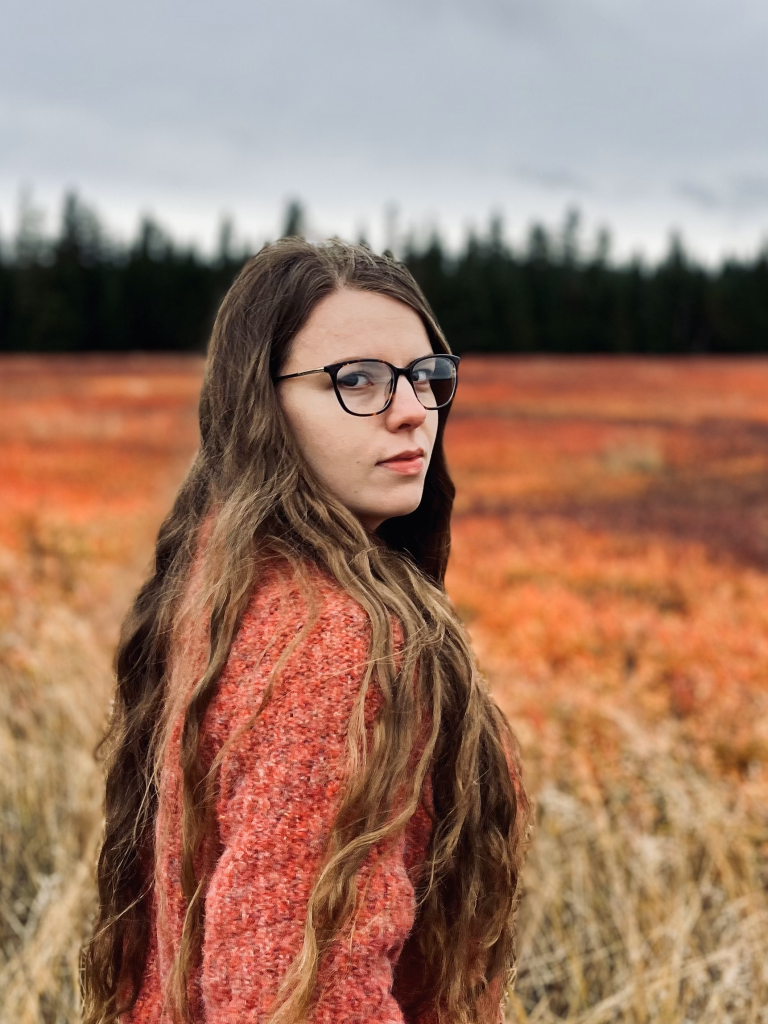
D.S. Ravenhurst writes horror and fantasy about women faced with impossible situations, impossible choices, and bittersweet, impossible endings. Her work can be found in Shadows on the Water Short Stories (Flame Tree Press, 2024). In between her (too) many hobbies, she studied Linguistics at Macalester College in St. Paul, MN, and Applied Linguistics at the University of Edinburgh in Scotland, focusing on the endangerment, minoritization, and revitalization of Celtic languages. When she’s not planning new adventures or listening to sad, traditional Irish and Scottish songs, she can be found Irish dancing.
If you enjoyed the story you might also want to visit our Support Page, or read the other story offerings.

